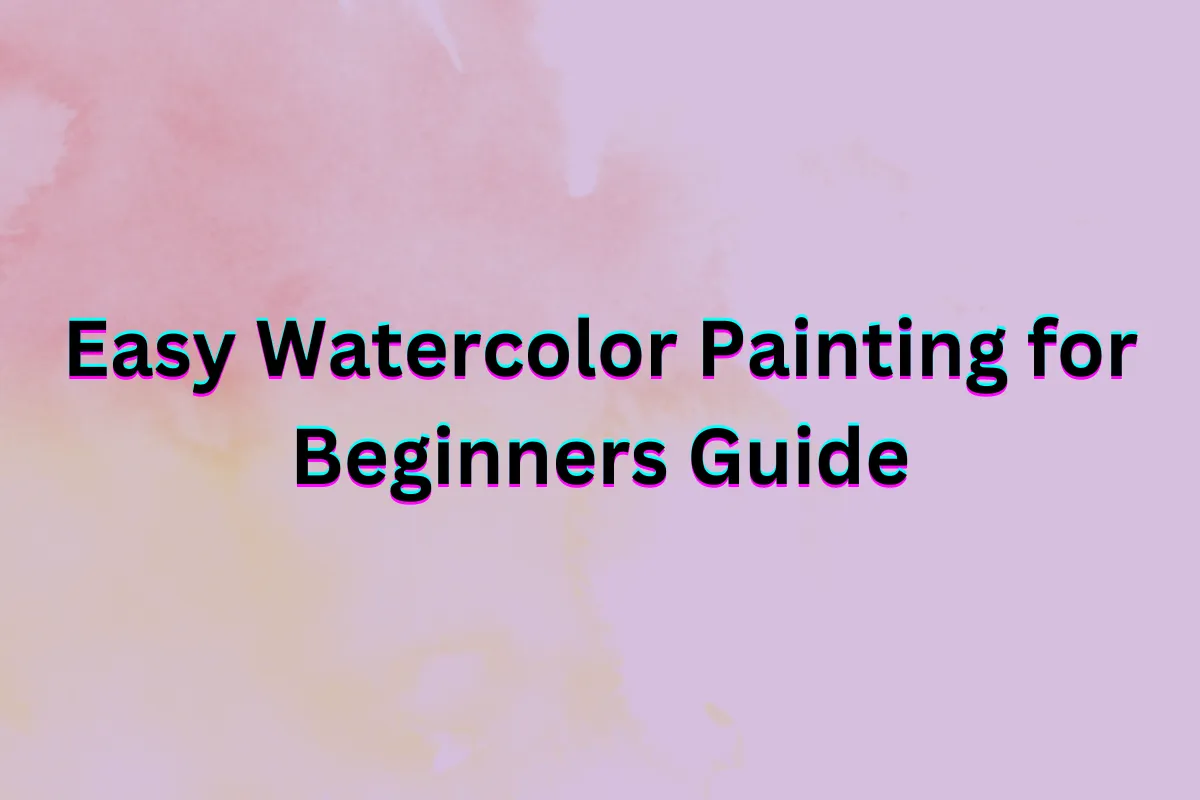Your cart is currently empty!
Easy Watercolor Painting for Beginners: Step-by-Step Guide to Unleash Your Creativity

Introduction
Watercolor painting is a captivating and versatile art form that allows beginners to create stunning artworks with ease. If you’re new to watercolor painting, this beginner’s guide will walk you through essential techniques and provide valuable tips to help you unleash your creativity. Explore the world of vibrant colors and learn how to create beautiful watercolor paintings step by step.
Essential Materials for Easy Watercolor Painting
Before you embark on your watercolor painting journey, it’s crucial to gather the necessary materials. Here’s a comprehensive list of essential supplies:
Watercolor paints for beginners: Discover a high-quality set of watercolor paints with a wide range of colors to experiment with.
Beginner-friendly watercolor brushes: Invest in various brush shapes and sizes, including round and flat brushes, tailored for beginners.
Round Watercolor Paint Brush Set
Watercolor paper designed for beginners: Choose watercolor-specific paper that can handle water and pigments effectively.
Canson XL Series Watercolor Textured Paper Pad
Palette for mixing and diluting paints: Select a palette that suits your preferences and provides ample space for color mixing.
Water container for rinsing brushes: Keep a convenient jar or cup of clean water nearby for easy brush rinsing.
Masking tape to secure paper: Use masking tape to secure your watercolor paper to a board or surface while painting.
Paper towels for cleanups: Keep a stack of paper towels close by to blot excess water and paint.
Basic Techniques for Easy Watercolor Painting
Understanding and practicing fundamental watercolor techniques will help you achieve impressive results. Here are a few techniques to focus on:
Wet-on-wet technique: Apply water to the paper before adding paint, allowing colors to blend and flow harmoniously.
Wet-on-dry technique: Apply paint to dry paper for precise edges and well-defined shapes.
Glazing technique: Layer transparent washes of color to add depth and richness to your artwork.
Dry brush technique: Utilize minimal water on your brush for detailed and textured strokes.
Salt technique for texture: Experiment with sprinkling salt onto wet paint for unique textures and patterns.
Lifting technique for highlights: Dab a damp brush or sponge on wet paint to lift off color and create stunning highlights.
Starting with Simple Subjects for Easy Watercolor Painting
As a beginner, it’s best to start with simple subjects to build confidence and skills. Begin by exploring basic shapes such as circles, squares, or triangles. Once comfortable, progress to painting everyday objects like fruits, flowers, or serene landscapes. Use online references or real-life objects as inspiration to unleash your creativity.
Mastering Color Mixing in Easy Watercolor Painting
Color mixing is a vital aspect of watercolor painting. Mastering this skill will allow you to create a wide range of hues and tones. Begin with primary colors (red, yellow, and blue) and experiment with mixing them to create secondary colors (orange, green, and purple). Gradually introduce complementary colors (opposite hues on the color wheel) to add depth and contrast to your paintings.
Patience and Embracing Mistakes in Easy Watercolor Painting
Watercolor painting requires patience and an open mindset to embrace imperfections. Allow ample drying time between layers to prevent unintentional color blending. Don’t fear making mistakes—watercolor painting is forgiving and often yields unexpected beauty. Learn from your errors and keep practicing to improve your skills.
Conclusion
With this beginner’s guide to easy watercolor painting, you can embark on a fulfilling artistic journey. By understanding the essential materials, mastering basic techniques, starting with simple subjects, and exploring color mixing, you’ll unlock your creativity and create breathtaking watercolor paintings. Embrace the process, practice regularly, and watch your skills grow as you enjoy the soothing and rewarding world of watercolor painting.